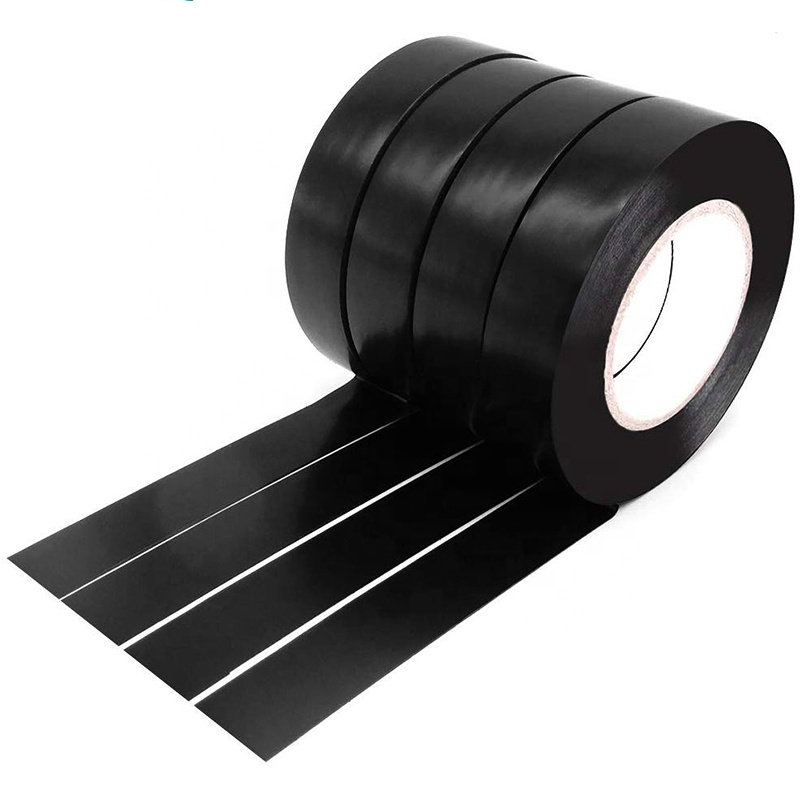Adhesive Cloth Automotive Wiring Harness Tape A Key Component in Vehicle Wiring
In the automotive industry, ensuring the integrity and reliability of wiring harnesses is crucial for vehicle performance and safety. One essential component that plays a vital role in the assembly and maintenance of these wiring systems is adhesive cloth tape, specifically designed for automotive applications. This specialized tape provides numerous benefits, making it an indispensable tool for automotive manufacturers and technicians alike.
Understanding Automotive Wiring Harnesses
Before delving into the specifics of adhesive cloth automotive wiring harness tape, it’s important to have a basic understanding of wiring harnesses themselves. A wiring harness is a structured set of wires, connectors, and terminals that facilitate electrical connections within an automotive vehicle. These harnesses are responsible for transmitting power and signals throughout the vehicle, connecting various components such as the engine, transmission, lighting systems, and infotainment units. Given their crucial role, it is essential that wiring harnesses maintain their functionality and withstand various environmental challenges.
The Role of Adhesive Cloth Tape
Adhesive cloth tape, often referred to as fabric tape or harness tape, is specifically engineered to meet the demanding requirements of automotive environments. This tape is composed of a cloth backing coated with a high-performance adhesive, providing excellent adhesion, durability, and flexibility. The cloth material offers a level of resilience that is superior to plastic tapes, making it ideal for applications that might involve movement, vibration, or exposure to temperature variations.
One of the primary functions of adhesive cloth tape in wiring harnesses is bundling and securing wires. By tightly wrapping the wires, the tape prevents tangling and reduces the risk of abrasion that can lead to wire damage over time. Additionally, the use of tape to bundle wires helps to streamline the wiring process, making it easier to manage and install, which is particularly beneficial during the assembly of complex wiring systems.
Benefits of Using Adhesive Cloth Tape
adhesive cloth automotive wiring harness tape

1. Durability Adhesive cloth tape is designed to withstand various environmental conditions, including heat, moisture, and chemicals, which are common in automotive applications. This durability helps protect the underlying wires and ensures a longer lifespan for the wiring harness.
2. Ease of Use The tape can be easily torn by hand for quick application, allowing technicians to work efficiently. It adheres securely without the need for additional tools, making it a convenient choice in automotive assembly and repair.
3. Electrical Insulation Many adhesive cloth tapes offer excellent electrical insulation properties, ensuring that electrical signals are transmitted accurately without interference. This feature is vital for maintaining the reliability of the vehicle's electrical systems.
4. Noise Reduction The fabric material used in adhesive cloth tape can help dampen vibrations and reduce noise caused by moving parts. This is particularly useful in automotive environments where noise and vibration can impact vehicle comfort and performance.
5. Aesthetic Appeal Adhesive cloth tape is available in various colors, providing a visual advantage in identifying different wiring components or circuits within the harness. This can facilitate easier troubleshooting during maintenance.
Conclusion
In conclusion, adhesive cloth automotive wiring harness tape is a critical element in the automotive industry. Its combination of durability, ease of use, and electrical insulation makes it an essential choice for managing and protecting wiring harnesses. As vehicles continue to evolve with more complex electrical systems, the importance of reliable materials such as adhesive cloth tape will only grow. For manufacturers and technicians, investing in high-quality adhesive cloth tape is not just a matter of convenience; it is essential for ensuring the performance and safety of the vehicles they produce and maintain.
-
XIANGFAN Rubber Tape-Ultimate Solutions for All Your Insulation NeedsNewsJun.24,2025
-
XIANGFAN Rubber Tape-Protection for Industrial and Residential ApplicationsNewsJun.24,2025
-
XIANGFAN Rubber Tape: Superior Safety and Sealing for Demanding EnvironmentsNewsJun.24,2025
-
XIANGFAN Rubber Tape: Reliable Solutions for Every Electrical ChallengeNewsJun.24,2025
-
XIANGFAN Electrical & Industrial Tape: Powering Reliability Across IndustriesNewsJun.24,2025
-
XIANGFAN Electrical & Industrial Tape: Excellence in Every ApplicationNewsJun.24,2025
